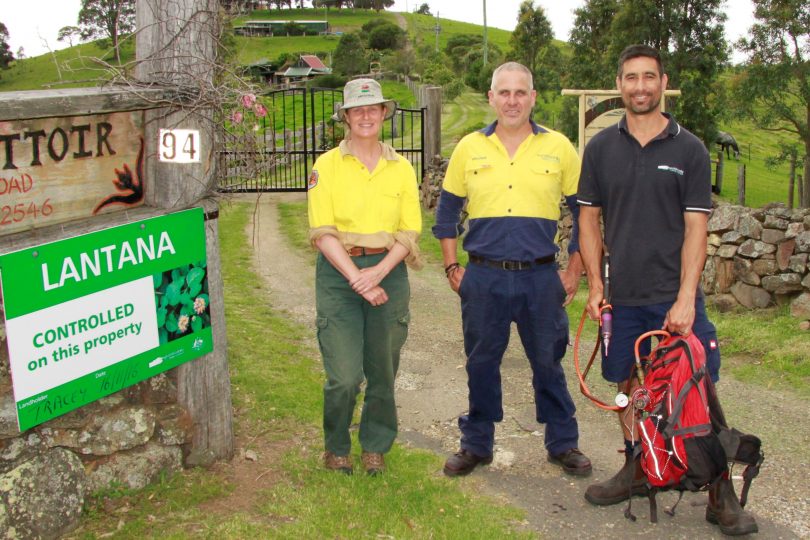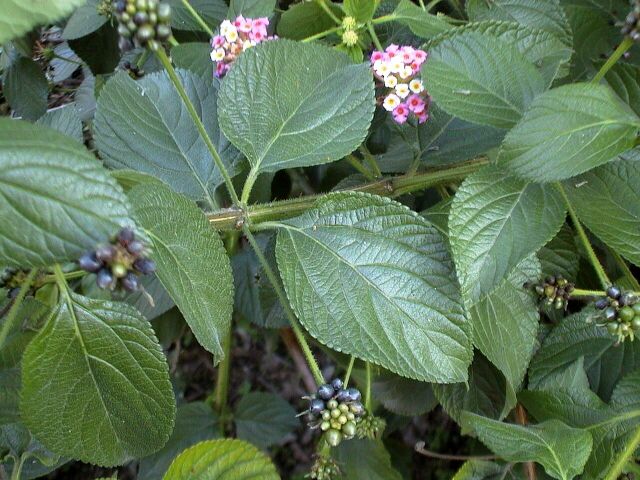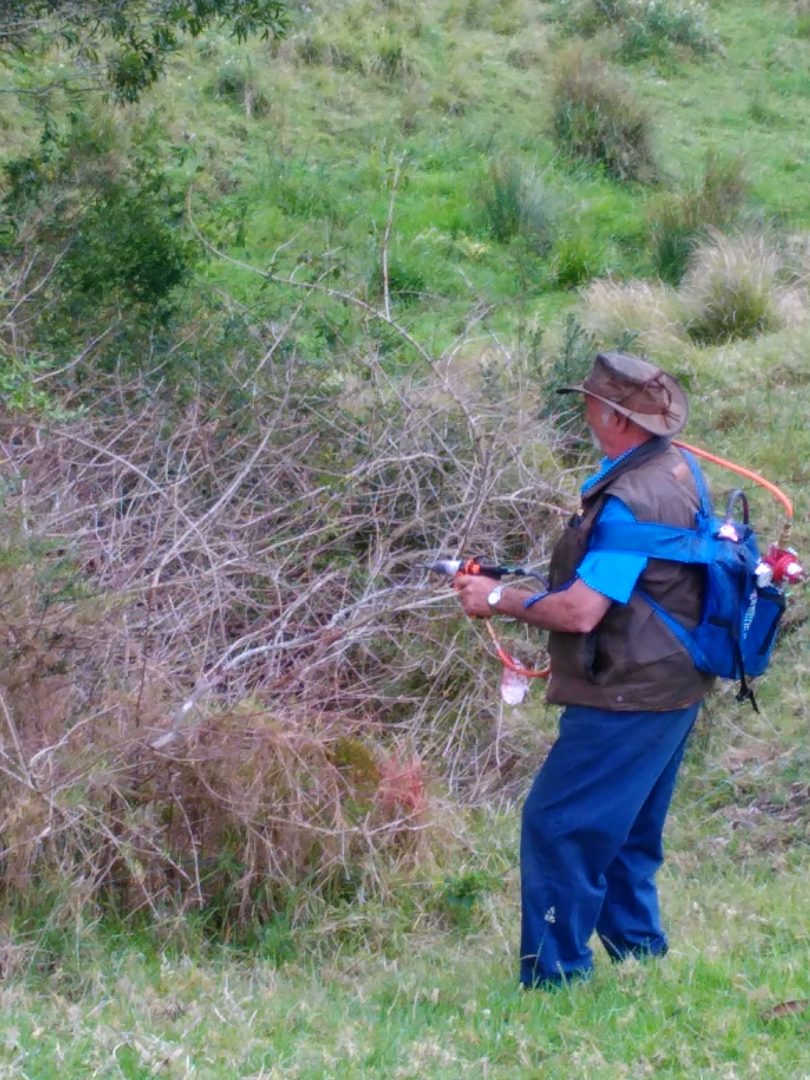
Wildlife Service’s Sophie Hall-Aspland, Eurobodalla Council’s Environment Project Officer Mitchell Jarvis and Invasive Species Supervisor Paul Martin at one of the Tilba properties involved in the pilot Lantana Control Program. Photo: Supplied.
Eurobodalla Shire Council is calling on landowners around Narooma to take advantage of assistance to manage Lantana before funding runs out and while the weed is growing vigorously – making herbicide more effective.
“It’s a good time to spray right now and sometimes that window is pretty short,” Council’s Environment Project Officer Mitchell Jarvis says, “especially on rocky, sunny slopes, the lantana dries out fast and becomes stressed and then we can’t spray.”
Listed as a ‘Weed of National Significance’, Lantana is a highly-invasive, toxic plant that commonly infests hard-to-reach places and has resulted in an estimated $104.3 million lost in agricultural production Australia-wide.
Wallaga Lake is the southern-most point in Australia where Lantana grows and there is a national focus on containing the weed and preventing further spread south or west.

Lantana. Photo: southeastweeds.org.au
As well as being toxic to stock, Lantana presents problems for native plants such as the threatened Warty Zieria shrub, which only grows in the Gulaga and Tilba Tilba area. There are only 3,000 plants left in the wild, all of which can be found locally.
Growing to about 3.5 metres tall, it has warty branches and narrow leaves that grow in groups of three, as well as creamy white flowers that grow in large clusters.
For properties where Warty Zieria has been identified, free Lantana control from Council is available, backed by the NSW Environmental Trust.
Mr Jarvis says that one of the biggest threats to Warty Zieria is invasive species like Lantana which crowd out native species. He encourages landowners in the vicinity of Gulaga to give him a call.
“A coordinated approach is essential to ensure Warty Zieria’s long-term survival, so we need as many properties as possible on board. If we lose this species forever, we won’t be able to get it back,” Mr Jarvis says.

Warty Zieria have warts, along with a distinctive citrus-lavender scent. It is estimated that there are just 3,000 plants left in the world – all of them are around Gulaga [Mt Dromedary] and Tilba Tilba. Photo: Supplied.
Council has 17 spray guns which can be borrowed by landowners with Lantana on their properties and will also provide free training on using the guns and herbicide.
But gaining access to the heart of Lantana thickets can be a problem, Mr Jarvis says, as it grows in dense clumps and on cliffs and hard-to-reach places. Council will arrange free track cutting for any landholder needing access to control Lantana on their property.
“With the help of splatter guns, landowners are often surprised at how easy the control of Lantana is once they have access, the knowledge, and correct equipment,” Mr Jarvis explains.

Gary Whiffen controlling Lantana on his Tilba property. Mr Whiffen is a participating primary producer in Eurobodalla Shire Council’s Lantana Control Program. Photo: Supplied.
Thirteen properties around the base of Gulaga with populations of Warty Zieria have participated in Council’s free treatment so far. Mr Jarvis encourages others to get in touch, especially if neighbours have identified Warty Ziera on their properties.
“We’ve had about a 95 per cent reduction in Lantana on those properties involved, which is very significant,” he says.
“Lantana has a relatively short seed life of six years, so if landholders act now, we hope to get rid of it from the southern region within the next couple of decades.”
Control of Lantana infestations is enforced by Council but Mr Jarvis stresses that he and his colleagues want to help landowners rather than issue penalties.
For more information contact Mitchell Jarvis on 4474 1263 or email [email protected]






